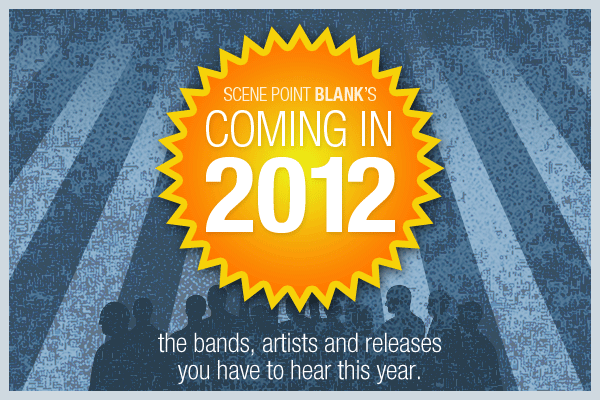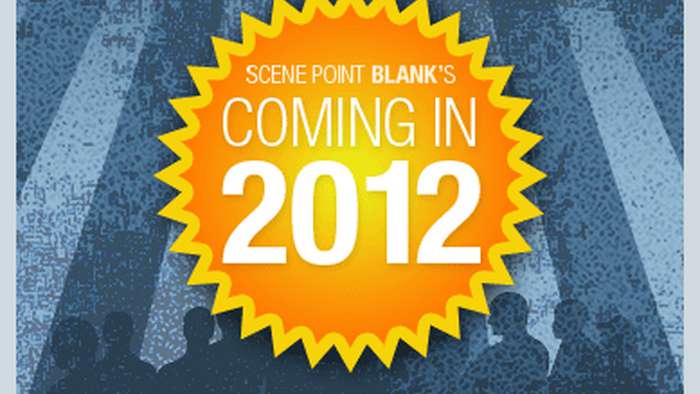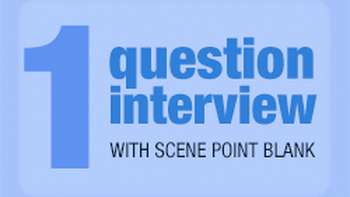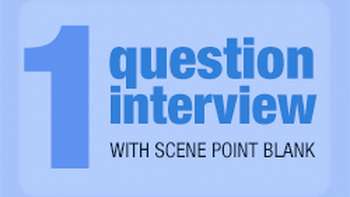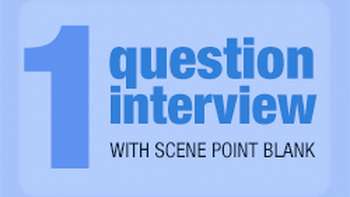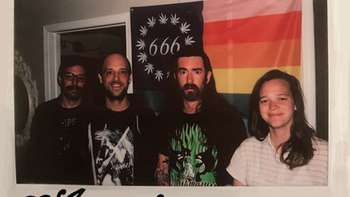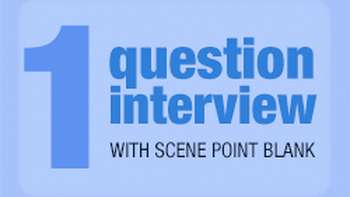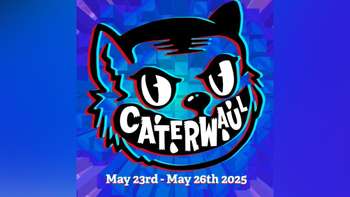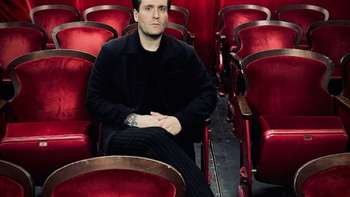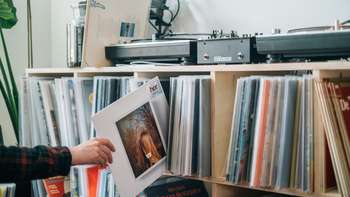
We asked the SPB staff to take a moment to look ahead and predict. Here are the top 5 releases each of us are looking forward to. Some involve new records from classic artists, some are new faves, and others are pure rumor-mongering. The only criteria is that they must be items we're still looking forward to, so apologies to the artists who have already released outstanding material this year. Without further ado...
Aaron
- Fun. -- It's probably no secret by now that I love this band. I'm still highly anticipating Some Nights, and it's just a couple weeks away. It's gonna be sad to see them move away from the Aim + Ignite sound, but damn if I'm not excited to see where they go from here.
- Murder by Death -- One of my favorite bands is hard at work on new material right now. They seem to be pretty pumped about it, so naturally I am too. I've yet to be disappointed by a Murder by Death album, and I'm sure whatever they're cooking up won't be an exception.
- Circle Takes the Square -- Still anxiously awaiting its release. Decompositions Vol. 1 was supposed to be out last fall and it never came. Some still believe it'll never happen, but I'm hanging on.
- Propagandhi -- Really, what else is there to say other than "please release a new album this year?" The song they teased us with was wonderful!
- RVIVR -- One of, if not, my favorite punk band right now. The two songs they released last year were fantastic, and I hope they've got more to record and release this year.
Bob
2012 holds a great deal of promise as far as what records are being hinted at dropping this year. So many good bands and even some hallowed ones are prepping new material for release this year, and really, if you are the type of person that says no good music has been released in a while, then you just are not listening. This list was extremely hard for me to compile because there is a huge amount of records that are coming out in 2012 that I am excited to hear, and if you notice, one of these is officially out now while three others are due out around the time that you are reading this:
- Sutekh Hexen -- Larvae (Handmade Birds)
Seriously, besides the fact that the LP version completely sold out during pre-orders in less than a week, Larvae is highly anticipated by more than just the growing group of fanatics that hang on everything that this now three piece levies on the world, but no matter the anticipation, nothing is going to prepare people for just how great this album is; simultaneously crushing and serene, Larvae is going to open Sutekh Hexen up to a whole new batch of listeners. Do not miss this.
- House Of Low Culture -- Poisoned Soil (Taiga)
On a personal level, I have been waiting for a new album from House Of Low Culture ever since the digital version of Housing Tracts was released to the public over a year ago and all the while leading up to the release of Poisoned Soil Aaron Turner teased us with songs on split cassette tapes and a collaborative entry with Merzbow on a split LP with Mamiffer last year. Well, the wait is finally over this year; and this dense album will hopefully reward people with another glimpse into the twisted passages that twist and turn through the House Of Low Culture.
- Locrian & Mamiffer -- Bless Them That Curse You (Profound Lore / Sige / Utech / Daymare)
Upon first hearing of this collaboration in the summer, my mouth silently formed the word “whoa.” I mean, it is not often that two adventurous and creative outfits such as Locrian and Mamiffer knock their creative boots together to spawn a new work. Bless Them That Curse You is a seemingly awesome pairing that has the potential to be a landmark release from the artwork and packaging (the visual artists involved in the release is also impressive with Terrence Hannum, Faith Coloccia, and Aaron Turner all being noted visual artists in their own right) to the music itself.
- Earth -- Angels Of Darkness, Demons Of Light II (Southern Lord)
Call me a sucker, but any new Earth record is bound to stir up some strong feelings on either side of the fence (be it yea or nay), and this is the follow up, or more specifically, the companion piece to last year’s album from the band that was recorded at the same point that its predecessor was; however, Angels Of Darkness, Demons Of Light II is supposedly a much more loose and improvised affair.
- Swans -- The Seer (Young God)
Ah yes, the Swans returned in 2010 to much critical acclaim and a staunch attitude that this rebirth of the band was not a quick cash grab to trade on the former glories of the members’ youth, and the album, My Father Will Guide Me Up A Rope To The Sky certainly showed that they meant that statement. Over the course of the year plus since their rebirth, Swans showed some expansive and crushing pieces in live situations that were yet to be documented in the studio that are certainly uncompromising hints of what is to come.
There are tons of other great artists with records coming out this year: Cremation Lily probably has about 4 to 8 tapes on the way, Planning For Burial already released the Quietly tape by the time you read this and just maybe we’ll get blessed by a few more or even that album that has been hoarded by the artist for the last year or so (but it probably will not), the almighty Neurosis supposedly has a new album due out this year (which if it does will be damn amazing I am sure), Jodis (Aaron from Isis and a slew of others, James and Tim from Khanate and a bunch of others) has a new album coming soon, Mamiffer may or may not drop an album, Locrian also has another collaborative album with Christopher Heemann due out on Handmade Birds, and Sutekh Hexen has another 12 or so releases this year.
I could go on, but you probably are overwhelmed by that as it is. Keep searching, keep listening.
Cheryl Prime
Let it be known that I suck at knowing what's been announced for release for an upcoming year. From tiny independent albums to major label releases, I pretty much won't know about it until I'm hearing it. With that in mind, I drew up a list of five albums that I'm certain are going to drop this year (with a little help from some friends) and that I'm definitely looking forward to. I may have missed something terribly obvious, but these are the five that stuck with me.
- Germ -- Germ is the solo project of Australian musician Tim (Austere, Woods of Desolation) and a debut album has been a long time coming. Originally set for a January release, and having been in gestation for at least five years, Wish is now ready to be heard in March.
- The Great Old Ones -- This French outfit first came to my attention whilst on a lazy browse through bandcamp. Happening upon their page and a couple of album "pre-production" tracks was enough to pique interest in their Lovecraftian black metal stylings. Released via Antithetic Records in April, Al Azif cannot come soon enough.
- Katatonia -- Katatonia's 2010 record Night Is The New Day was a highlight of that year, and is still an album I come back to constantly. Their brand of sweeping melody and elements of deep despair touch the soul in a beautifully melancholic manner; one can only hope the music they're currently recording will do the same.
- Lake Of Blood -- This Southern Californian black metal project are about to hit the studio to record the follow up to last summer's As Time And Tide Erodes Stone and, if that misanthropy filled diatribe is anything to go by, these new recordings will only add fuel to the fire that is the Lake of Blood manifesto.
- Panopticon -- Last year's Social Disservices was an incredibly relevant piece dealing with a terrifically heavy subject, one that is close to the heart of Panopticon's sole member A.Lunn. This year sees another side to the Panopticon sound in Kentucky, a record that promises to be heavier and far more grim and frostbitten than anything before it. Exciting!
Loren
- The Tim Version -- According to our 2011 Pass the Mic, there's a new release on the way from Tim Version. It's about time--Decline of the Southern Gentleman was one of my earlier SPB reviews, and my first interview as well.
- Toys That Kill -- It's been how many years since Shanked? Simply put, Toys That Kill are due for another sloppy-pop-punk full-length. Nobody writes a melody like Todd Congelliere.
- Rancid -- Yeah, it's more curiosity at this point. My favorite band from age 16 hasn't done much to interest me for the past decade, but I'm always intrigued.
- POS -- I swear this was rumored last year and we got the Doomtree No Kings release instead. Looking forward to more genre-pushing hip-hop with a bit of abrasive punk crossover.
- Murder City Devils -- What can I say? It's early in the year and I'm living on rumors here. This one has allegedly been in the works since the first reunion shows. Do I believe it'll happen? Not really.
Matthew Sarah
- Meshuggah -- Koloss
With song titles like "The Hurt that Finds You First", "I Am Colossus" and "Break Those Bones Whose Sinews Gave It Motion", I am doing my best not to erupt with anticipatory joy at Meshuggah's new album. Given that they've been releasing nothing but top-tier material since 1995's Destroy Erase Improve, I have no reason to believe that Koloss will be anything but satisfying.
- Rush -- Clockwork Angels
I can only subsist on teaser singles for so long! If the rest of this album is anything as good as "BU2B" and "Caravan" were, then Rush's newest album Clockwork Angels could turn out to be their best since Moving Pictures. It better be, given how long we've been waiting on it.
- Storm Corrosion -- Storm Corrosion
One of the many supergroups I can't wait to hear in 2012, this one involves Porcupine Tree/Blackfield frontman Steven Wilson and Opeth guitarist Mikael Åkerfeldt. The album has been described as "the final part in the odd trilogy of records completed by Heritage and...Grace for Drowning", and consists of six songs, each more than ten minutes in length. Believe me, this album is one I cannot wait to hear.
- Primal Rock Rebellion -- Awoken Broken
Another one of the many supergroups I am looking forward to this year, Primal Rock Rebellion is a collaboration between Iron Maiden guitarist Adrian Smith and former SikTh vocalist Mikee Goodman, two bands that both command immense respect. Though I'm personally gunning for the album to land more on the SikTh side of the fence, this combination of talents will do well no matter where it ends up.
- Squackett -- Squackett
And yet another one of this year's supergroups, Squackett features Yes bassist Chris Squire and former Genesis guitarist Steve Hackett. I won't lie, I'm hoping for a big classic progressive rock wank-fest with 20-minute tracks and far-out lyrics. But this duo would be hard pressed to release a disappointing album at this point.
Nathan
- Murder City Devils -- In a recent interview (recent, as in two years) MCD lead singer Spencer Moody claimed the band, while not totally back in full swing, was indeed recording a new album. Late last year a new two-song 7" quietly marterialized, confirming that they are at least doing something. Every Day I Rise b/w Ball Busters in the Peanut Gallery shows them moving a few steps away from ferocious garage punk and into an artier area, encapsulating the influences from the band members various other projects. It's a natural extension from where the MCD left off on the Thelema EP back in 2001, leaving me fully intrigued by what comes next...provided something actually does.
- Black Face -- Another hypothetical one here. Last summer news broke that former SST Records co-owner and OG Black Flag bassist Chuck Dukowski had teamed with avant-punk vocalist/writer/real-life-kicker-of-human-ass Eugene S. Robinson to form Black Face, a band that would play unheard songs from and influenced by My War-era Black Flag. Word is that four songs had been recorded, yet only two surfaced on a 7" only release. That means there are at least two more to be heard. Add that to the fact the band has added some live dates, with an entire set list, finds me hopeful that there will be a new record as well.
- Action Bronson -- various
2012 looks to be just as busy a year for the Albanian descending Flushing-Queens,NYC MC as last year was. Bronson is expecting a whopping five releases this year! Four albums: Rare Chendeliers with Alchemist, Mr. Wonderful with Tommy Mas, as well as one each with Lex Lugar and Harry Fraud, and a mixtape with Party Supplies called Blue Chips. That's an overwhelming amout of material to digest, but I'm up for the task.
- Strong Arm Steady & Statik Selektah -- Stereotype
Cali cliq SAS is back at it again, this time with production/DJ powerhouse Statik Selektah behind the boards. For the past two years these two have quietly created some best hip-hop records: SAS with the Madlib collabo In Search of Stoney Jackson and the follow-up Arms & Hammers, and Selektah lacing a number of MCs, from up-n-commers like Freddie Gibbs and Action Bronson to veterans like Edo G. and Reks. My finger is eagerly hovering over the "purchase" button, ready to click as soon as this pops up in iTunes.
- Dilated Peoples -- Directors of Photography
After being enamoured with their first two albums, and especially their live show (they could rock a crowd like no other), I had completely lost interest after the lackluster outing Neighborhood Watch, and never really paid much attention to anything that came after. That is until last year when Evidence dropped his excellent second solo album Cats & Dogs. The fire has been reignited with me. Here's hoping the same goes for them. After all, it's been six years since they have done anything as a group.
Runner Up: a whole bunch of punk records
It's election year here in the United States. Naturally there is going to be some really good punk rock comming out. And I, for one, am looking forward to every bit of it.
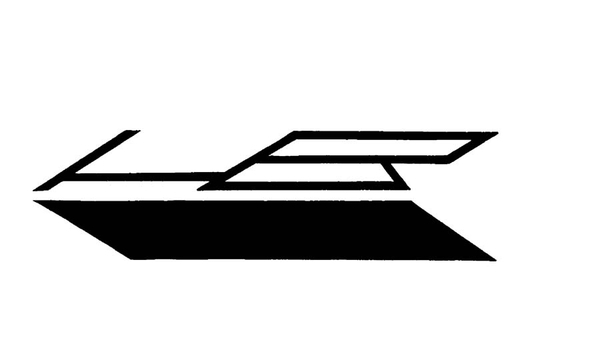
Handmade Birds started off with a huge bang in 2011, building a roster that is full of great artists both obscure and a little less obscure (to the public at large but well known within their respective musical circles). Every release was excellent and eye-opening in some way or another. Following up such a monstrous year is a tall order, but the label mastermind R. Loren (Pyramids, Sailors With Wax Wings, White Moth) has plenty up his sleeve for 2012.
Scene Point Blank: Why start a record label in the age of “illegal downloading”?
R. Loren: I must be insane, really. Upon the birth of my second child, I decided to catapult my family into debt to release music. The reality is, however, that I insist on my two daughters growing up around tangible art, and the boutique nature of the label and its small pressings allow me to appeal to an audience, however far it may shrink. This is in my blood and the time to act on the label endeavour had to be now and not ten years down the road.
Scene Point Blank: Does Handmade Birds have a conscious goal or a theme with all of its records?
R. Loren: All cliché aside, I have to love it. The overarching theme, though, is that the artists all have an affinity for texture. That is the thread that runs through the roster. I try to keep a good balance of both dark and light artists, and within their respective realms there is sonic layering and textural patterns in the music and/or production that keep them linked. This allows relevance between artists without the label getting nailed to one specific genre.
Scene Point Blank: Please recap your 2011 (and early 2012 as you had some bleed over) for the readers that may be unfamiliar with your label. [Editor's Note: SPB has reviewed many of these items.]
R. Loren:
- Evan Caminiti – When California Falls Into The Sea LP
- Blut Aus Nord – Mort LP
- Key – Birch Skeletons... 3x10" Box Set
- Servile Sect – Trvth LP
- Servile Sect – Svrrender CS
- Crooked Necks – Alright Is Exactly What It Isn't LP
- Crooked Necks – Something Must Break 12"
- White Ring – Hey Hey, My My + Felt U 12"
- TenHornedBeast – Ten Horned Moses Descended The Mountain 3xCD
- His Name Is Alive – King Of Sweet 2xLP
- Der Blutharsch – Werkschau 2xLP
- Swamp Horse – Winter Ghost CS
- Hostage Pageant – Abuse Generator CS
- Preterite – Pillar of Winds CD
- Celestiial – Desolate North LP
- Circle Of Ouroborus – Eleven Fingers LP
- The Human Quena Orchestra – A Natural History Of Failure LP
- Demian Johnston – If They Even Find Me CS
- Sadness Saturn / Utarm split CS
- Sadness Saturn / Golden Raven split CS
- Blood Of The Black Owl / At the Head Of the Woods split CD
- Dreamless – All This Sorrow, All These Knives
- The Rita – The Rack CD
- Sutekh Hexen – Larvae LP/CD
- S/V\R – Celebration Noire
- Sun Devoured Earth 4xCD Box Set
- Gates – They Hide In The Shadows CD
- Aelter – III LP
- Hunter Hunt-Hendrix – Transcendental Black Metal Book
I am typing this list and it feels really long. I think it is time to slow down a bit. Seriously, wow.
Scene Point Blank: What challenges has the label had to overcome so far?
R. Loren: The post office: customs forms, packing orders, standing in line. Meeting deadlines for the release dates, and hoping the cassette manufacturer can get jobs done on time. Oh, yeah, and debt. [Laughs.]
Scene Point Blank: What was your most surprising release and in what way?
R. Loren: The first release of 2012, Sutekh Hexen's Larvae. The pre-order color vinyl sold out in less than a day and the rest in less than a week. I knew the response would be positive, but not overwhelming like it was.
Scene Point Blank: So what does Handmade Birds have in store for its devoted following in 2012?
R. Loren: A new Circle of Ouroborus album called The Lost Entrance of the Just will come out in March, and I am really excited about that because the record we did with them last year is one of my favorites of all time. Speaking of which, it [Eleven Fingers] will be released on CD alongside the new LP in March. Other than that, two milestone releases from Locrian with Christoph Heemann and Panopticon's Kentucky—both of which will be game changers. Also new stuff from Our Love Will Destroy The World, Jason Zeh, Jazzfinger, lovesliescrushing, and an amazing band from Denton called Pinkish Black who sound like The Birthday Party—only they have completely reinvented that sound with two people.
Scene Point Blank: With the boom in cassette tape releases, what kinds of issue have there been producing tapes?
R. Loren: The production is really slow. Often the turnaround will be quoted as 30 days, but the job won't even start for weeks after that. I think many of the factories have sold off their dupe towers and are short on staff, not expecting such a rise in business. I have heard they are working on it, though. It can be frustrating when a cassette is what holds up a package from being mailed out, and it’s painful to send part of a package and then spend another afternoon later trying to pack just a cassette to send to Spain or something.
Scene Point Blank: What is your favorite format to release? Why?
R. Loren: My favorite format to release from an aesthetic standpoint is vinyl, from an economic standpoint cassette, and from a personal preference CD. I still use CDs for the majority of my listening. Vinyl obviously offers a ton of visual options.
Scene Point Blank: What 5 artists not on your label would you kill to work with?
R. Loren: This question is always hard, because I desperately want to answer it, but am convinced I will jinx myself if I did. I would say that doing a solo record for James Plotkin or Toby Driver would be fun. There is one Canadian band I would do anything to release something from, and I hope one day that happens. Fingers crossed. CoO was a pretty big deal for me, because I love their music, so to do two of their records is a huge honor.
---
Words: Bob

Honestly, I will never forget the first time that I listened to The Crystal World. I had just seen the cover artwork for the album (courtesy of Justin Bartlett) and ordered the double CD version from Utech that minute, but there could be no waiting for the physical copy to arrive and I downloaded the first CD shortly thereafter. What transpired next was something akin to a musical revelation as the droning and churning “Triumph Of Elimination” instantly hit its mark: darkness and light, hope and loss, pain and elation, all flowed forth simultaneously. I was hooked. Some time has passed since that first evening with Locrian and an intense tracking down of whatever I could get from the group has transpired. And then The Clearing came out, maybe a little out of nowhere (at least for me), and Locrian once again threw themselves back into the center of my aural hemisphere. I took a flyer and fired some questions to Andre, here is what transpired.
Scene Point Blank: How surprised or excited was the group with the reception The Crystal World? What, if any effect, did the response have on your later material (i.e., did it make you all more excited to write and record again or did you feel any pressure to follow up the release at all)?
Andre: I was really happy with the reception of The Crystal World. I think that album was a bit more accessible than some of our earlier stuff and that probably helped the album to reach new listeners. Personally, I was happy that we weren’t too rushed when we recorded the album. We worked in a really affordable studio which gave us some freedom to explore different layering ideas. We began recording our new album, The Clearing, right as we were finishing up The Crystal World. At that time, we were excited to be recording with Jeremy Lemos (the engineer for The Clearing) and we were excited about working on another release with Steven Hess. I don’t think that the success of The Crystal World has had much of an effect on our more recent recordings, though. The most recent Locrian—without collaborators—thing that we’ve recorded since The Crystal World was released was our “Dort Ist Der Weg 7” that came out over the summer. When we recorded that, I know that I, for my own personal satisfaction, wanted to do something that was a progression from anything else that we’ve done and I’m really happy with how that release came out.
Scene Point Blank: How much of a sign of things to come would you consider the Dort Ist Der Weg 7”?
Andre: I’m not really sure, to be perfectly honest. The music that we’ve recorded since the 7” (our Locrian/Mamiffer album and our Locrian & Christoph Heemann album) are different for me in that I don’t think of these as proper Locrian albums. I know that the three of us were a bit more critical of the music on the 7” and I think that the music on that turned out really nicely because we were really invested it in and we weren’t in much of a rush to finish it. If we’re able to do another Locrian full-length, then we haven’t discussed our ideas for it yet.
Scene Point Blank: Would you describe your attitude towards 7”s and EPs as being along the lines of them as a tool to explore other sounds that may or may not be included on a full-length? For instance might we one day hear Locrian’s take on HNW or some other obscure noise motif?
Andre: Terence and I both like some HarshNoiseWall stuff, but I don’t think that we’ll ever do anything that can be easily categorized. I think that there are actually parts of “Extinction” [CD2 of The Crystal World] that sounds like HNW stuff to me.
I think that 7”s can be great to explore different sounds that might now be included on a full-length, but the reason that I like them the most is that the sound constraints (you can only fit about 5-6 minutes per side). The sound constraints force you to say something really succinctly. I remember that as an undergraduate I used to take classes with an Onondaga chief named Oren Lyons who would routinely have to make statements to world leaders at the United Nations and other forums. He used to say that it was really easy to say something when you have no time constraints, but it was much more difficult when you have to say something really important in a shorter amount of time, which for him was often about 30 seconds. That’s the way that I feel about a 7”. I feel like on the last 7” that we did, we wanted to make a bigger statement, but we wanted to say it really quickly. In that sense, I think it was one of the most difficult things that we’ve recorded.
If there is another Locrian full-length, then I sometimes think that the best way for us to do it would be to try to make each of the tracks short enough to fit onto a side of a 7”.
Scene Point Blank: Speaking of the Dort Ist Der Weg 7”, it contains Locrian’s take on a song from Popol Vuh. Has the group ever thought about other covers or homages to your influences?
Andre: We all really like Popul Vuh and we thought that Dort Ist Der Weg was an interesting track for them because it was almost a rock song and sort of stands out from the rest of their catalog. We didn’t really overthink doing the track. I just remember thinking that it was going to be difficult to do the track justice, and that it would be a track that would possibly be a surprise to some people since it’s such an overlooked track for Popul Vuh.
Terence, Steven and I haven’t really discussed doing any other tributes to other musicians that we respect. I think that we’d rather focus on our own music, but I wouldn’t rule anything out. If we did something like that someday, then we’d want to do it well. It would be funny and challenging for us to do something that though.
I guess one of the things we’re working on right now is sort of a tribute to Coil. Coil recorded a bunch of writers reading their work with the intention of using these as sound sources for their music and they had some unfinished recordings when John and Sleazy died. There’s going to be a double LP of this material released and we’re working on using a recording that they did of Taylor Mead reading is work.
Scene Point Blank: You had two releases with Horseback in 2011, a split 7” and a collaborative EP entitled New Dominions. As I understand it, the 7” took a while to actually be released, but did that split lead to the collaboration on New Dominions? Did Locrian and Jenks Miller collaborate in person or did you trade ideas back and forth some way?
Andre: We began planning for the Locrian/Horseback 7” a while ago, maybe in mid-2009? I think that we recorded our music for that release in fall of 2009 or something and the label didn’t get around to releasing it until this year. When we recorded that 7”, we had no idea that we would be collaborating on an EP. We have been friends with Jenks since we started planning to do the split 7”. We were invited to play the Hopscotch Festival in 2010, which is in Jenks’ hometown so when we agreed to play that, Jenks asked us if we wanted to do some recording with him when we were in North Carolina. We spent about a day and a half recording that EP and then Jenks mixed the recordings on his own.
Scene Point Blank: Probably one of the most shocking aspects of Locrian is how often you release music. How does the group keep up with such a hectic writing and recording pace? How much of your recorded music is improvisation?
Andre: Our release schedule is deceiving because we actually don’t record very frequently. Oftentimes a recording offer is a motivation for us to get together and play. We’re all really busy, unfortunately, so we can’t play a lot of shows or do much touring. When we do get together we usually just get down to business and we’ll begin fleshing out ideas. The amount of our music that is improvised always changes. Typically, we have loosely structured songs with room for improvisation. Sometimes, our improvisations turn into tracks that we’ll loosely repeat in a live setting.
Scene Point Blank: One of the Locrian members recently moved if I am not mistaken. What kind of effect is the group expecting from the geographical distance?
Andre: Yes, Terence recently moved around Baltimore this summer. Locrian has constantly been changing since Terence and I started playing together in late 2005. I think that, if anything, the geographic distance will benefit us. For a while, I’ve felt a bit overwhelmed by the number of releases that we’ve had coming out and I think that Terence probably felt the same way. We’ve also played some shows that I feel like were more trouble than they were worth in the last few years. I like playing shows, but in the proper context. So I think that, if anything, if we keep playing then we’ll be able to make more focused and stronger statements and hopefully, if we play any shows, then they’ll be shows that make bigger statements as well.
Scene Point Blank: The Clearing seems to have a warm sound. Did the group alter the recording process or use different recording techniques for the album? How was the writing different or similar from previous efforts?
Andre: On The Clearing, we had a different set of tools to use than on previous efforts (e.g., a grand piano, different amplifiers, etc.) Jeremy Lemos was really conscious for us to use layers that didn’t step on other layers. He had a lot of great suggestions. We also wanted that album to be rawer than The Crystal World. We intended for it to be shorter—a single LP. Terence really wanted to use the grand piano, which turned into the first track on the album, “Chalk Point.” At the same time, I was really inspired by Randy Rhoades work on the first couple Ozzy Osborne records where he would double track his guitar solos to sound really thick. I did that on the first track and I think it gave it a really interesting tone. For other parts, I used the Arp Avatar guitar synthesizer which was the synthesizer that killed the Arp company in the late 1970s. I think that instrument really thickened up some of the album.
Side B, The Clearing track, came out of an idea we had to make a really think caveman-like jam. We did that track, and the others, without too much double-tracking. Most of what we recorded was live and Jeremy helped us to keep space for each part.
Scene Point Blank: I would not have thought of Randy Rhoades as a direct influence from listening to The Clearing, but you bring up an excellent point in regards to influences affecting more than just instrumental execution. Did you overdub the other guitar tracks or did you set up separate mics or cabinets?
Andre: Oh yeah, I love those first two Ozzy solo albums. I listened to them over and over when I was growing up and I always liked how Randy Rhoades would often double track his lead guitar parts and that’s really what inspired me to double track my guitar melody part of ‘Chalk Point.” I didn’t want to double it too closely though, since I wanted there to be some unpredictability to it. I think that when I overdubbed any guitar parts on “Chalk Point” I was trying to get different sounds so I would change up a guitar, and amplifier, or some effect.
Scene Point Blank: Did you vary the sound of the other guitar tracks from the original?
Andre: Yeah, on “Augury in an Evaporating Tower” I played my Arp Avatar guitar synthesizer. This put the guitar through two signals: the synthesizer signal and the signal from the Arp “Hex” pickup. We mostly boosted the synthesizer sound in the mix, but then I also did at least one overdub with a guitar going directly into the soundboard. The clean lead-ish guitar part on that track is direct into the board. I think it sounds really strange on the track since it was our most metal track on the album and the sounds that made the track metal are sounds that I wouldn’t expect hearing on a metal album.
Scene Point Blank: Are influences like this or certain recording techniques discussed amongst the band members prior to writing and recording?
Andre: It’s always different. I might have mentioned my Randy Rhoades idea to Terence and Steven, but I don’t think that it would have made much sense. We’ll talk about things like Brian Eno’s recording techniques and other recording techniques at times. I know that we all like to play with the recording process and the writing process.
Scene Point Blank: How much would you consider the band to be musical “gear heads”? Is there a large collection of vintage electronics and pedals spread across the membership of Locrian? Do you find trying out all sorts of equipment brings an excitement to your music on a personal level?
Andre: We like to do the best with what we have. We’re too broke to be gear heads. I have the same guitar, amplifier, and cabinet than I did when I was fifteen. I’d love to have new equipment, but the sounds that I get from that stuff are more about me than the equipment. The Arp Avatar was the first piece of different equipment that I’ve got in a really long time. I do use a vintage Echoplex and Terence uses some old synthesizers and tape machines. These things can sound great, but they also make our lives difficult when we play live. I do love playing with different equipment, though, especially older equipment which has a wider range of unpredictability to it than newer more digital equipment.
Scene Point Blank: The Clearing does have a live feel to its sound, particularly the drums in “Chalk Point” (they seem very warm) and just the way that the album spatially feels is almost organic. Is this going to be a further avenue of sonic exploration for Locrian?
Andre: Jeremy Lemos got a great sound for our instruments on The Clearing and I trust him more than any other engineer that we’ve worked with. I definitely think that he helped us to sound like a band and that’s something that we’ll probably keep in the future. Our Locrian/Mamiffer album is really warm as well and I think it really benefits what we do.
Scene Point Blank: Did you record live to tape or live to digital? What is your favorite recording medium: tape, digital, a combination?
Andre: We typically record to digital, though we’ll often process our instruments through tape when we’re recording. Terence and I recorded our Endless Plains/Flat Horizon tape directly onto tape and that’s the only thing that we’ve recorded onto 2” tape. Tape can add a nice tone to a recording, but it’s also time consuming, expensive, and limiting in some ways. Also, there are fewer and fewer people that have the knowledge to record a band onto tape. Digital recording has come a long way in the last few years so I don’t feel like we’re losing much from recording to digital. Our Dort Ist Der Weg 7” was recorded to digital, then directly to tape, and then digitized again and I think that added a nice warmth to the recording.
Scene Point Blank: Did the group have any goals in my mind when preparing for The Clearing? Did the record meet your expectations? What are you most satisfied with regarding the album and what might have been done differently with the record?
Andre: When we started recording that album, we had a lot of ideas and we had enough money for studio time to get about four ideas finished to our satisfaction. We really wanted the release after The Crystal World to be a single LP and to do something things that we haven’t done before.
For the most part, yeah, I’m really happy with our music on the release. We played bits of the album live before recording it and I wanted to include another track for the album, a track that Terence and I played live a few times. I think each of our four studio albums are really different musical statements and I sometimes wish that we would have not been so rushed by time deadlines but, at the same time, I’m really happy that each of these seem “real.” Real in the sense that we didn’t fix a lot of mistakes or unexpected noises that came up when we were playing. I’m kind of against fixing mistakes a lot of the time. I think that recordings that are too perfect lose something.
When we were recording The Clearing, Jeremy and I talked about the first concept album, Frank Sinatra’s In The Wee Small Hours and how at the time that album was recorded, everyone in the band had to be perfect when the recording was going since there wasn’t the isolation that some modern studios can provide artists. I feel like our recording was partially inspired by that idea. For most of it, the three of us were performing in the same room at the same time. For example, you can hear my guitar bleed into the piano microphone on “Chalk Point” before the drums come in.
Scene Point Blank: Does the live environment have a large influence on Locrian compositions? Does the group often work out arrangements live before recording?
Andre: I think that the live performance, or at least improvising live can add something to our compositions, but often our studio improvisations have led to the music on our studio albums. I would love to be able to work out stuff in a live setting before we record, but that isn’t always possible.
Scene Point Blank: How significant is the live element to Locrian as a whole?
Andre: I’m not sure. We generally like playing live, but it’s also been more and more difficult the more structured our sound has evolved. Now, it’s really difficult when we play live and something happens with our fragile old, sporadic equipment. I’m sure we’ll adapt though.
Scene Point Blank: In some ways, the type of bleed-through can be difficult to manage when mixing an album. How much time and effort did the three of you put into mixing The Clearing? What challenges arose during the process?
Andre: Bleed-through can be difficult, but at the same time it’s part of what we do. We want to play in the same room, we want there to be an element of unpredictability to what we do, we don’t want anything to sound too thought out.
We mixed the album really slowly. We probably finished the mix over about 3-4 shorter sessions. To be perfectly honest, Jeremy did a really nice job recording the album and it made mixing really simple. Each track also had a really unique sound which gave the recording a lot of space. Jeremy really appreciates space in his recordings and that helped the album out a lot.
Scene Point Blank: I have heard that The Clearing was sort of tailor-made for a vinyl LP release. Was this an actual design that the group had in mind from the beginning? Is format choice a conscious decision for certain releases? Your label, Land Of Decay, is mostly a cassette tape label; is this a conscious decision and what about tapes makes them an interesting format to release music?
Andre: Yeah, we wanted the album to be one LP. I think that it’s an effect of the compact disc for musicians to make really long albums and for people to expect really long albums. I think about some classic albums, e.g., Black Sabbath Paranoid, or any of the first Led Zeppelin albums, and most of them were on one LP even though they are these really big statements. We felt like we wanted to do the same thing with this album. I feel like if there was a CD version of The Clearing, that four tracks might even seem like too little for it, but the music feels appropriate for an LP.
Some people have said that The Clearing is more accessible than our other releases and I don’t necessarily agree. I feel like there are a lot of nuances to the album and I think that with an LP, a format that forces the listener to flip the music over at a certain point, the listener is forced to make more of an investment into really paying attention to the music. I also think that the artwork for the release, a photo from Brian Ulrich, is really important to our statement and I think that an LP helps to make that statement stronger.
Yes, we always think about format with our releases. I’m not sure that I would like The Clearing to be experienced as a CD or a tape because I really want people to have the best version of the album with the final artwork.
Our label, Land of Decay, focuses on tapes for a bunch of reasons. Obviously, we like the idea that tapes decay over time. I also like that it’s relatively cheap to release tapes, which means that we can work with musicians that we’re fans of. If we were to release records if one record didn’t sell well, then we’d be out of cash to release more releases. Tapes are cheap and fun so they aren’t as big of a chance. I also like the idea that we focus on small batches of tapes that we intend to only release in one edition. Our tapes are also not perfect even though we try to make them perfect. We might have the tapes professionally imprinted and the covers digitally printed, but usually the creases are a bit off, or there’s something about them that has a human touch. I think that human touch is important. The reason that we do limited quantities is because we both really like the physical object of a release and it also has a limited environmental impact. I think that these tapes are good and that they should remain in someone’s collection rather than the landfill someday.
I like the idea that with tapes, there’s no way for last.fm, Apple, Pitchfork, or whoever to track what you’re listening to at any time. I see tapes and records as a resistance to the digitization of music. The sound quality of the tape may be different from a high resolution digital file, but a musical statement made on a tape has a different meaning. I would say that it’s less removed from the musician and label that released the music and that’s one of the main reasons why we make music: that is to feel less removed from people, rather than more removed.
Scene Point Blank: I feel as though last.fm and the others are conscious choices that people make for tracking their listening habits. I agree with your assertion that digital music seems less personable than say a record or tape or maybe even a CD. Do you find that the digitization of music and the move to cloud storage marginalizes artists and music fans alike who actually like to create and manufacture and own and hold records or what have you in their hands?
Andre: Yes, those are all conscious choices. There are plenty of good things about last.fm, iTunes, etc. too. I think that digitization of music can be great, but it has a lot of unintended consequences. I think that things like last.fm can be great when it helps to build community. I’m not sure that I can talk about all artists but, for us, we think about the artwork, packaging, and everything about our release and when someone just hears a low quality digital version then I think that’s great in some ways, but it’s only part of the statement. On the other hand, it’s really crappy that it’s expensive to produce physical releases and it’s expensive to buy them (and to ship them) too.
Scene Point Blank: Sometimes it feels like file sharing and the proliferation of digital music like MP3s lessens the cultural impact of music and commoditizes music and musicians even more. Would you consider the format choice of your releases (be they Locrian or Land Of Decay) to be a cultural statement?
Andre: Our releases are cultural statements. The medium is part of the message.
Scene Point Blank: I never considered the format as an ecological statement, and the decay theme was lost on me until you mentioned it. Would you characterize these aspects of your involvement in music as a realization of impermanence of the recorded medium over time? Do you think that these views suggest an urgency in your work?
Andre: There are a lot of statements, and perhaps Terence and Steven would see this differently, but I think that limiting the number of physical copies is definitely part of an ecological statement. I mean, there is a contradiction there because tape production causes pollution, but I definitely feel better about making that pollution since the impact is more limited.
Recorded music is really impermanent and recent. Humans have only been recording music for a little over a hundred years and humans have been making music for thousands of years. So, yeah, I think of our work as being really impermanent. With every new technology: tapes, records, cds, etc., there’s a loss of something and I think that’s why tapes and records are becoming more popular. Many people are cognizant to that loss and that’s one of the many factors that’s causing a resurgence of popularity in these formats.
There is a strong ecological statement to Locrian’s work and I definitely think that the message is urgent. I hope it makes people feel something because we’re at a critical moment in the history of humanity and the history of the planet. There aren’t any nice, neat, clear solutions to our environmental condition right now. When I think about the critical environmental moment that we live in, then I feel the things that I hope the listener feels when they experience our work: sadness, horror, confusion, etc. I also feel some hope for the planet and humanity, but that feeling is more difficult for me. My hope is that our work makes the listener think about that although we’re not giving any clear “fix” to these problems.
Scene Point Blank: Artwork seems to be a significant aspect of Locrian, whether it is for the group’s own records or for the releases on Land of Decay. Do you consider the visual aesthetic important for Locrian’s music?
Andre: Oh yeah, the visual aspect is so important to the music. We make music because we have something to say and the visual aspect is one piece of that statement. Our statement isn’t direct either, which makes the visual aesthetic more important. Everything we do is part of the statement, from the edition size of our releases to the format to the lyrics to the feeling of the music. I think that our statement has been more effective on certain releases, but all of these aspects are important. Terence and I grew up in the hardcore scene, a scene that had a lot of nice little neat answers to bigger problems. We’re not giving the listener any neat little answer to bigger problems because our world is not that simple. We have responses to these bigger problems, but you need to interpret them.
Why does Locrian have so many limited edition releases? I would look for the answer in the sense that many of our releases have a theme of environmental disaster to them. What’s the context of our releases? Well, we live in a society that is addicted to growth—in terms of our population (7 billion and counting) and our economy. Our population and economy can’t keep growing if we want future generations to have future generations. So we keep releasing physical statements, but limited physical statement.
Scene Point Blank: How about music in general? How does the group decide on specific artists with regards to releases?
Andre: I think in general the visual is important for many important releases, but I don’t think that all releases are musically or artistically significant. With our releases for other artists on Land of Decay, we try to give the artist as much control as possible for the aesthetic of their group’s release. We respect the people that we release and if we work with them, then we think that their work is important and significant.
Scene Point Blank: How Closely does Locrian work with the artists who are visually contributing to your release? Do you explain specific themes of the recordings? Do you provide the artist the recordings ahead of time?
Andre: This depends on each release, but Terence has been responsible for the design and artwork on most of our releases. The cover of The Clearing was a photo that Brian Ulrich took and gave us permission to uses. On the other hand, the cover of The Crystal World was created especially for that release. We probably gave Justin Bartlett the music to the album before he finished the artwork. I honestly can’t remember.
Scene Point Blank: I would assume that some of the DIY aesthetic which you participate in with the label and the band derives from your previous involvement in the hardcore scene. Would you characterize the artists with which you work on Land Of Decay and the labels that you deal with in regards to Locrian as continuing some of the more positive community aspects of the hardcore scene?
Andre: I like to feel a sense of community with the artists that we work with. I guess I feel a difference sense of kinship with each of the different artists that we work with. We just released a Servile Sect tape and I feel a strange connection with that since I feel like they dovetail with some of Locrian’s music really nicely and I also met those guys recently, but they’ve shared a bunch of really old friends with me.
Scene Point Blank: How important is community to Locrian? You seem to carry the sense of community over into your music with the collaborations that you participate in, as well as the sheer breadth of labels that release Locrian’s music. How conscious is this, or is it born of necessity?
To me, community is really important although it’s confusing. I have all sorts of community: geographic, special interest, etc. One of the reasons we play music is to connect with people and that’s led us to doing so many releases with different labels. Each of the labels we’ve worked with has been a slightly different circumstance.
I feel like our music is more about us than any of our communities, though. We’ve collaborated with people in our community before but, for most of our existence as a band, it’s just been me and Terrence. I definitely think that the push from our community to perform and record has pushed us to do more and has helped.
Scene Point Blank: Locrian has a collaborative album coming soon with Mamiffer. What was the impetus behind this pairing? How was the recording process?
Andre: We’ve been communicating with Aaron Turner and Faith Coloccia for a while now and we were both scheduled to play the Utech Records festival in Milwaukee in June 2011. We discussed the idea of playing some shows together and/or doing some recording together before the fest. When it got closer to the festival, we were able to schedule some studio time and enough interest from labels to help to fund our recording.
The recording process was really great for the album. We were able to book a few days in Electrical Audio with Greg Norman as the studio engineer. It was really wonderful to be able to work in such a nice studio and to have so many unique instruments to play with, e.g., grand piano, tack piano, mellotron, lot of guitars, etc. Aaron and Faith have a lot of experience and great ideas so it was really a pleasant experience working with them. On that note, I’m really happy that the release is finally recorded, mixed, mastered and ready for release.
Scene Point Blank: Prior to hitting the studio, was there an exchange of musical ideas with Aaron and Faith? Or was the recording virtually spontaneous? How much music was conceptualized prior to recording?
Andre: Before we recorded, we didn’t have much of a chance to discuss ideas. We were primarily trying to figure out a way, financially, to make it work so that we could make a recording to be proud of. We were supposed to practice the day before we began recording, but Mamiffer got stuck in bad weather and couldn’t make it to Chicago. The day we began recording was the day that we began exchanging thoughts.
The ideas that I brought into the recording were all spontaneous, but I think that Faith and Aaron had a few existing ideas that they brought in.
---
Words: Bob
Photography: Rik Garrett
